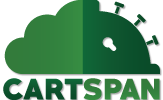Solutions
Our goal is to find a solution to the problem or need you have, and we try hard to leverage only the latest innovations in technology to do that. We also know that new ideas or complex issues need complex approaches to solving them. But rather than trying to develop every aspect from scratch, what we do is combine and leverage trusted systems that are already in place. What this means to you is that a robust well supported system is less costly to achieve.
So if you've got an idea you always wondered about, or have a business that you think could benefit from a web presence, don't hesitate and call us today. We'd be happy to chat about it!
Outlined below are just some of the common industry-trusted technologies we work with, but there are many more, and new ones become available every day.

Ecommerce & Magento 2
From an e-commerce standpoint, if you're looking for a solution that will serve as a basis for growth, Magento is the way to go. There are other approaches, such as Wordpress + Woocommerce, or other simpler solutions such as Shopify, but in our opinion they aren't as comprehensive and can be more costly due to how they are designed to collect payment. We typically recommend them when you have smaller number of unique SKUs, or items.
Magento can support 10s of thousands of products and is a powerful system. You can extend it to perform almost any task, but keep in mind it isn't a content management system, so if you need more of that capability you might consider creating a site that leverages multiple systems.
If you already have a Magento site, we'll be happy to assist you with it. Are you looking to migrate a Magento 1 site to Magento 2? We can help with that too.
Do you want to sync with Quickbooks or another accounting system?
Automatically import your on-line orders into QuickBooks, QuickBooks POS, or Sage 50, eliminating the need for time consuming and error-prone re-entry using Cartspan. It saves you hours of time when it comes to entering a lot of purchases and payments in your accounting toolset.

Amazon Web Services (AWS)
AWS is a cloud platform, offering services from data centers globally. Millions of customers —including the fastest-growing startups, largest enterprises, and leading government agencies—trust AWS to power their infrastructure, become more agile, and lower costs.

Google Cloud
The Google Cloud Platform is a set of Computing, Networking, Storage, Big Data, Machine Learning and Management services provided by Google that runs on the same Cloud infrastructure that Google uses internally for its end-user products, such as Google Search, Gmail, Google Photos and YouTube. Google Cloud allows you to expand your offerings using the various APIs and other services that are supported in their system.

Twilio
Twilio is a cloud based service that enables powerful communication between mobile devices, applications, services, and systems throughout the business in order to bridge the gap between conventional communication.
Server Technologies

PHP
PHP is a widely-used and server-based open source scripting language, especially suited for web development.

Linux
Just like Windows, iOS, and Mac OS, Linux is an operating system. In fact, one of the most popular platforms on the planet.

Apache
Apache is a popular open-source, cross-platform web server that is, by the numbers, the most popular web server in existence. It’s actively maintained by the Apache Software Foundation.
Content Management Systems: Joomla vs. Wordpress


Joomla and Wordpress are referred to as content management systems (CMS). CMS's are similar to an operating system for a website, where core systems such as user management, content management, template support and essential security mechanisms are included. They are extendable, meaning there are many plugins available for each that gives you the ability to add new features or functionality.
From our perspective, Joomla is a little more suited for the management of pure content, such as a library of articles. And Wordpress is a little more suited for informational sites. Either is a very capable system, just implemented in different ways.
For custom development, Joomla is usually our 'go to' CMS. Mainly because we see it as more manageable code-wise. We have developed many custom solutions for clients using Joomla as a base.
For information purposes, such as a website for your church, we would usually recommend Wordpress. The interface is a little more friendly to self-management, which is our goal for this type of site.


